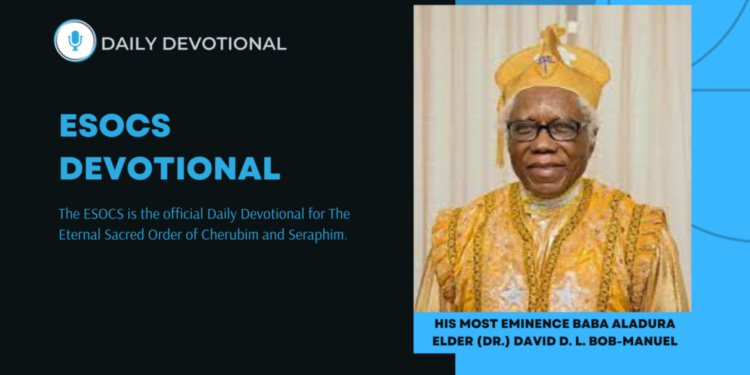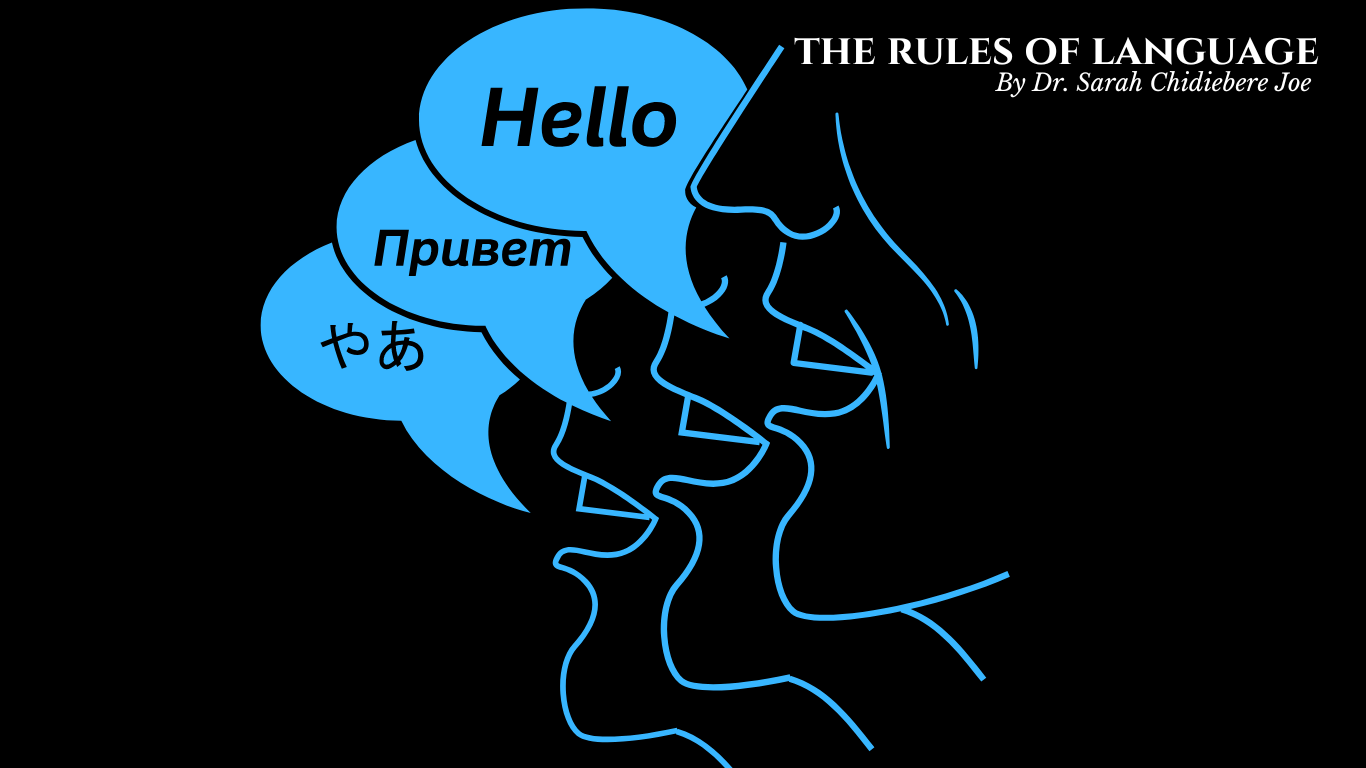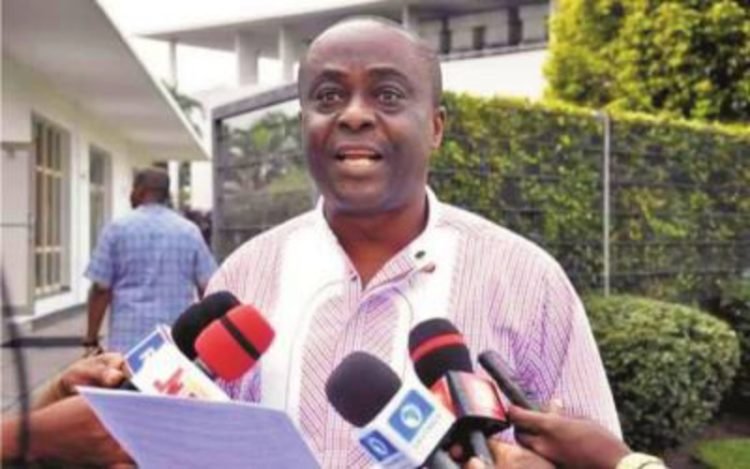ESOCS Devotional 1 November 2023 – Everlasting Possession
MEMORY VERSE: ““And said unto me, Behold, I will make thee fruitful, and multiply thee, and I will make of thee a multitude of people; and will give this land to thy seed after thee for an everlasting possession.” Genesis 48:4 KJV
TEXT: GENESIS 47:27 – 48:1-END (AMPC)
And Israel dwelt in the land of Egypt, in the country of Goshen; and they gained possessions there and grew and multiplied exceedingly.
28 And Jacob lived in the land of Egypt seventeen years; so Jacob reached the age of 147 years.
29 When the time drew near that Israel must die, he called his son Joseph and said to him, If now I have found favor in your sight, [b]put your hand under my thigh and [promise to] deal loyally and faithfully with me. Do not bury me, I beg of you, in Egypt,
30 But let me lie with my fathers; you shall carry me out of Egypt and bury me in their burying place. And [Joseph] said, I will do as you have directed.
31 Then Jacob said, Swear to me [that you will do it]. And he swore to him. And Israel bowed himself upon the head of the bed.
Some time after these things occurred, someone told Joseph, Behold, your father is sick. And he took with him his two sons, Manasseh and Ephraim [and went to Goshen].
2 When Jacob was told, Your son Joseph has come to you, Israel collected his strength and sat up on the bed.
3 And Jacob said to Joseph, God Almighty appeared to me at Luz [Bethel] in the land of Canaan and blessed me
4 And said to me, Behold, I will make you fruitful and multiply you, and I will make you a multitude of people and will give this land to your descendants after you as an everlasting possession.
5 And now your two sons, [Ephraim and Manasseh], who were born to you in the land of Egypt before I came to you in Egypt, are mine. [I am adopting them, and now] as Reuben and Simeon, [they] shall be mine.
6 But other sons who may be born after them shall be your own; and they shall be called after the names of these [two] brothers and reckoned as belonging to them [when they come] into their inheritance.
7 And as for me, when I came from Padan, Rachel died at my side in the land of Canaan on the way, when yet there was but a little way to come to Ephrath; and I buried her there on the way to Ephrath, that is, Bethlehem.
8 When Israel [almost blind] saw Joseph’s sons, he said, Who are these?
9 And Joseph said to his father, They are my sons, whom God has given me in this place. And he said, Bring them to me, I pray you, that I may bless them.
10 Now Israel’s eyes were dim from age, so that he could not see. And Joseph brought them near to him, and he kissed and embraced them.
11 Israel said to Joseph, I had not thought that I would see your face, but see, God has shown me your offspring also.
12 Then Joseph took [the boys] from [his father’s embrace] and he bowed [before him] with his face to the earth.
13 Then Joseph took both [boys], Ephraim with his right hand toward Israel’s left, and Manasseh with his left hand toward Israel’s right, and brought them close to him.
14 And Israel reached out his right hand and laid it on the head of Ephraim, who was the younger, and his left hand on Manasseh’s head, [a]crossing his hands intentionally, for Manasseh was the firstborn.
15 Then [Jacob] blessed Joseph and said, God [Himself], before Whom my fathers Abraham and Isaac lived and walked habitually, God [Himself], Who has [been my Shepherd and has led and] fed me from the time I came into being until this day,
16 The [b]redeeming Angel [that is, the Angel the Redeemer—not a created being but the Lord Himself] Who has redeemed me continually from every evil, bless the lads! And let my name be perpetuated in them [may they be worthy of having their names coupled with mine], and the names of my fathers Abraham and Isaac; and let them become a multitude in the midst of the earth.
17 When Joseph saw that his father laid his right hand on Ephraim’s head, it displeased him; and he held up his father’s hand to move it to Manasseh’s head.
18 And Joseph said, Not so, my father, for this is the firstborn; put your right hand upon his head.
19 But his father refused and said, I know, my son, I know. He also shall become a people and shall be great; but his younger brother shall be [c]greater than he, and his offspring shall become a multitude of nations.
20 And he blessed them that day, saying, By you shall Israel bless [one another], saying, May God make you like Ephraim and like Manasseh. And he set Ephraim before Manasseh.
21 And Israel said to Joseph, Behold, I [am about to] die, but God will be with you and bring you again to the land of your fathers.
22 Moreover, I have given to you [Joseph] one portion [Shechem, one mountain slope] more than any of your brethren, which I took [reclaiming it] out of the hand of the Amorites with my sword and with my bow.
Read Yesterday’s ESOCS Devotional here
The promise which God made to Jacob in our study text is the same promise which He made to Abraham and Isaac. This is same promise was made to every believer in Christ. It is in this promise that we anchor our hope. And what is the promise? It is the promise of an everlasting possession. The word everlasting shares same meaning with the word eternal and both mean lasting or enduring through all time, having infinite duration.
So, the possession which we are promised alongside the patriarchs is that which endures through all times. It is imperishable and incorruptible possession that cannot be ended even by death. The land which God promised to them and to us as an everlasting possession is not this present world as this present world last but for a moment.
The patriarch Abraham knew this hence he saw his time here as temporal and lived as a pilgrim; same with the patriarch Jacob who counted his years on earth as the years of pilgrimage. They all looked forward to the eternal possession which the Lord promised. The writer of Hebrews noted that they all died without receiving the promise. This further shows that the promise is not temporal but eternal.
This everlasting possession speaks of a place where God and his people would meet forever. This has been the intention of God from Genesis. He created man for this; the first man Adam didn’t enter into but Christ having possessed this promise has made it available again to mankind. Through Him (Jesus) we have an assurance of possessing this eternal promise.
Since we have this hope just as the patriarchs had, we ought also to live our lives as they did, counting our days on earth as days of pilgrimage, for there remains a promise of the everlasting possession, which God our Father will reveal at the right time.
Characteristics of the Everlasting Possession:
- It is God’s eternal plan for mankind
- It is spiritual
- God used the land of Canaan to demonstrate the everlasting possession to Abraham and the Israelites
- It can only be possessed through faith in Christ Jesus
- Though we possess it now, the full manifestation is in the future when Christ shall appear
We are therefore admonished to live our lives in this present world as sojourners, not as citizens. To do this, there is a mindset we must adopt which is the mindset of a traveler. A traveler does not live according to the customs of the foreign country because he understands that his time is temporal. We must maintain the lifestyle of the kingdom wherein we belong, knowing fully that the day of the Lord beckons.
FURTHER READINGS: Genesis 17:7-8; 47:9; Hebrews 11:13; 1 Peter 2:11-12
Thank you for reading the ESOCS Devotional today. Please share and follow us on all our platforms to contribute to the spread of the Gospel.
ESOCS Devotional 1 November 2023















